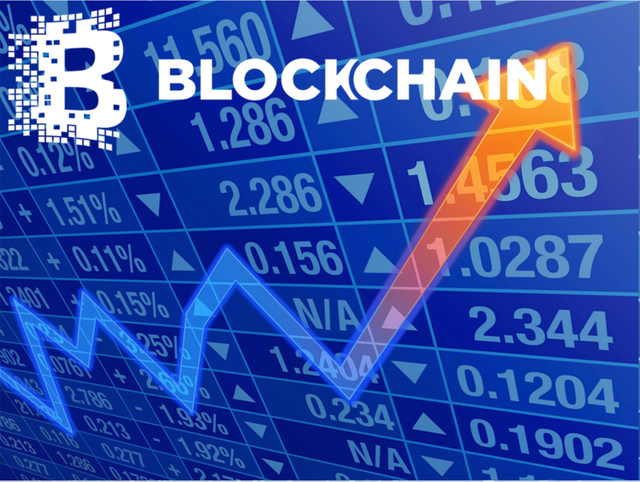
The Blockchain Technology is a concept that was born in 2009 with the appearance of the Bitcoin virtual currency, is based on a chain of blocks, each block of information is validated by each of the nodes that make up the chain of blocks and are decentralized in the equipment that is part of the network. The objective is to ensure that the information is not modified.
Seen in this way, this technology has offered since its emergence trust, cryptographic security and transparency in the transactions it performs; hence, it provides an opportunity to reformulate the current global financial and economic business model, as well as the value internet.
It should be considered, some opinions of experts in reference to the way in which the Blockchain revolutionizes the business world, among them: The Canadian Don Tapscott, considered one of the most influential minds of the digital era, affirmed that "the Blockchain will revolutionize the politics, business and finances of the future. " For his part, José Juan Mora, expert in programming and Big Data, stressed that "the most interesting Bitcoin is what is under it, supporting it, the technology of blocks of information in chain. This technology is going to allow us to live a new revolution. "
Similarly, José Cobián, director of the Circle firm for Southern Europe, said "we are facing a breakthrough that will impact the future of finance"
In this sense, below, some examples are given in which the Blockchain technology has revolutionized the business world:
- Financial Institutions: Blockchain technology is becoming a driving force in the digitalization of systems and processes in the financial services industry, as it allows the secure recording, storage and transfer of data in real time. Financial entities such as Santander, BBVA, CaixaBank or Bankia, are part of this consortium based on "Blockchain", which within financial services, will help to make a commercial transaction easier and safer, or reduce the time of availability of a transfer.
- Sale of Oil: A consortium that includes oil producers BP, Royal Dutch Shell and Statoil, commodity operators Gunvor Group, Mercuria and Koch Supply & Trading, and lenders ING Groep, ABN Amro Bank and Société Générale have developed a blockchain platform for physical operations. They have already tested the system with an oil tanker whose crude was sold three times before the physical shipment reached the final owner, China National Chemical. Verifying the transactions took 25 minutes compared to the three hours normally required, says Mercuria. And the process eliminated the risk of routine errors that take longer to solve.
- Vote: According to the executive director of Agora Leonardo Gammar "The African nation of Sierra Leone has used the Blockchain technology in the counting of its presidential elections", being the first time that a chain of blocks has been used in a government election
Patent: Huawei, based in Shenzhen, telecommunications giant and networks Huawei filed a patent application based on Blockchain, for the protection of intellectual property rights of digital content within a P2P network (peer-to-peer). Published by the Intellectual Property Office in China. - Education: Holbertson School began using the block chain to verify the educational credentials of applicants. Louison Dumont, founder of Bitproof, a company that uses blockchain for document authentication, says it will significantly improve the efficiency of the admission process. In turn, a Venezuelan University creates a subject on Blockchain and cryptocurrencies
- Smart Contracts: Blockchain allows subscribing smart work contracts, or Smart Contracts. The system is so advanced that it has the capacity to identify the contracting parties by means of a digital signature, monitor working conditions, define tasks, verify the degree of compliance with them.
- Pharmacological laboratories: The Blockchain allows the effective control and management of payments, the control limits limits to the falsification of drugs, inventory management, automation of the distribution chain, quality certification of medicines, trademark registrations, documentation records of the laboratories, registers of: patents, intellectual property, medicines, changes in the documentation on the composition of the drugs, digital prescription of medicines and the financing of research and the development of new drugs.
- Tourism: Blockchain would allow hoteliers to manage their own inventory, offer their services without the margins charged by intermediaries and adjust the offer according to demand in real time. The company Lockchain has developed a reservation interface for hotels and private properties (Airbnb type) based on blockchain technology. The idea is also to offer a service to customers by eliminating the charge of between 20 and 50% of commissions.
- Stock Exchange: The Australian Stock Exchange will begin to use Blockchain-based technology to liquidate operations, which will allow compensation and liquidation of securities to be faster and with lower costs, since there is no longer an intermediary.
- Food: Blockchain technology guarantees the transparency and safety required by food traceability systems, as Walmart has experienced with the implementation of a pilot system for pork in its 400 stores in China.
These are some examples in which the Blockchain technology has penetrated to transform the operations that were done before this technology and favor faster management in real time, and gradually converting the economy into digital, offering all operations are made digitally, which allows visualizing that organizations that do not assume this technology in their operations will be forgotten.
absolutely fascinating we're in a wild wild 5 to 10 years but the future sure is bright.
Downvoting a post can decrease pending rewards and make it less visible. Common reasons:
Submit